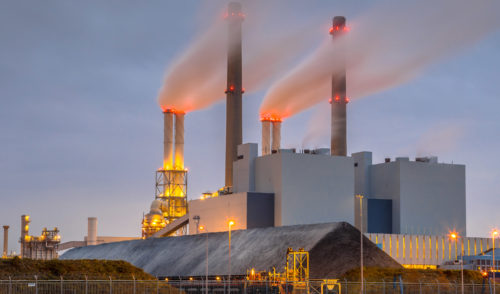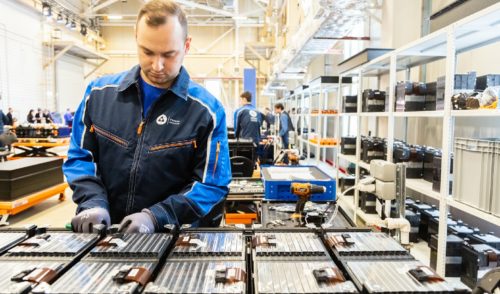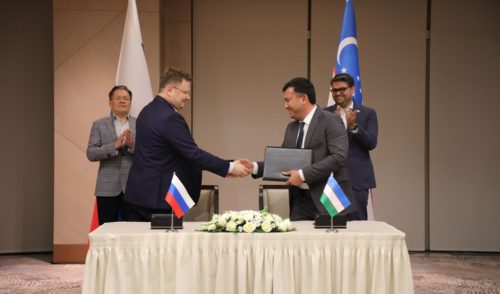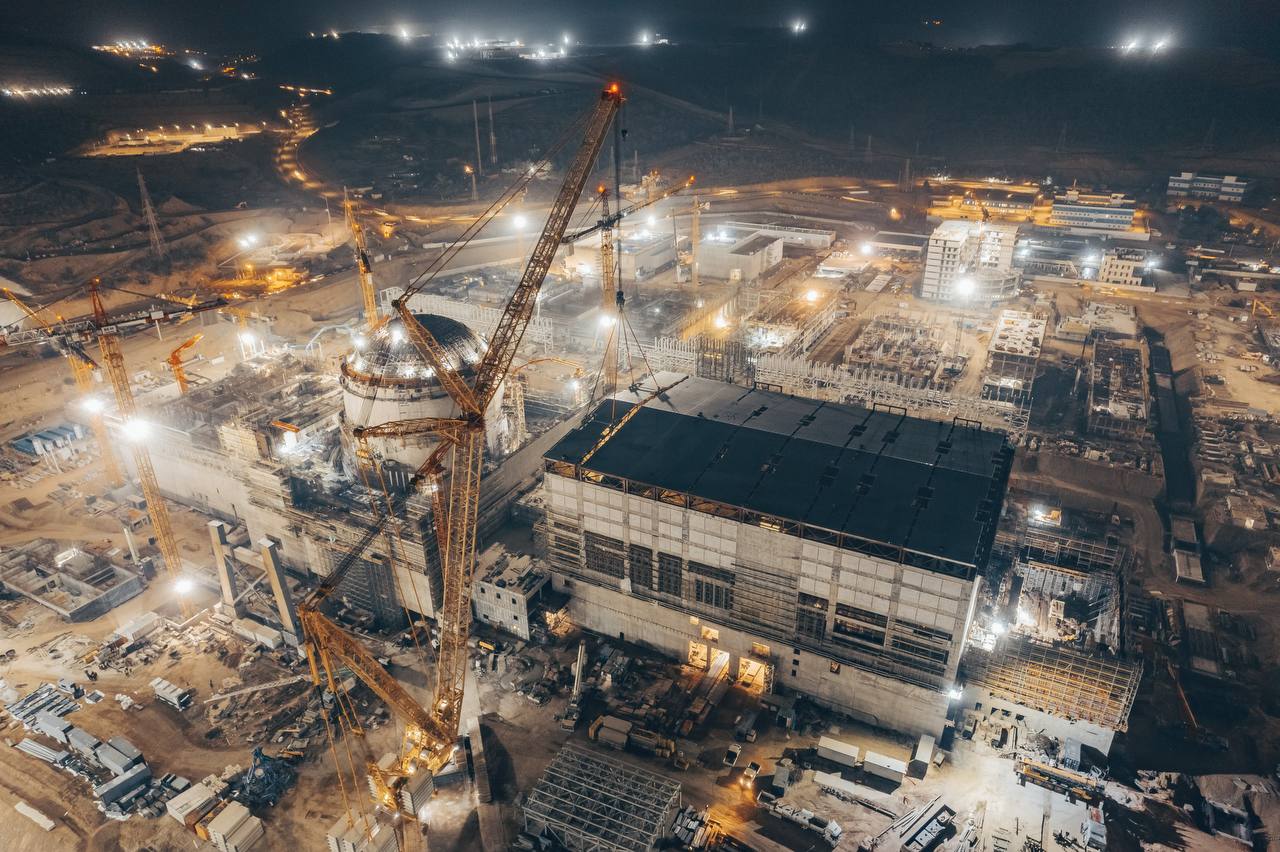
Right on Schedule
back to contentsFresh nuclear fuel will be delivered to the Akkuyu nuclear power plant this spring as confirmed by Rosatom’s Director General Alexey Likhachev who visited the construction site to meet with Turkish Minister of Energy and Natural Resources Fatih Dönmez.
During the visit, Alexey Likhachev offered condolences to the families of the victims of the recent major earthquakes in Turkey and wished a speedy recovery to the injured.
Commenting on the results of the meeting with the minister, the director general noted: “All of Rosatom’s obligations continue to apply, and we will deliver fresh nuclear fuel to the plant this spring. After that, the Akkuyu Nuclear Power Plant will receive the status of a nuclear power facility. General construction and installation works at the first unit will be completed in the third quarter, and we will move on to commissioning. Then, during the next few months, we will test the equipment and fuel right in the reactor in compliance with the IAEA requirements.”
After the meeting with the Turkish Energy Minister, Alexey Likhachev met with representatives of the Turkish contractors carrying out construction and installation works at the Akkuyu site. He told them about the project financing and possibilities for Turkish companies to take part in Rosatom’s other international projects. Alexey Likhachev also shared the plans to build residential quarters for the operating and maintenance staff of the Akkuyu NPP.
Earlier, Akkuyu Nuclear signed a contract to this effect with the Turkish construction company Özaltın Insaat. The development will consist of single-section buildings with different-size apartments. It will be designed to accommodate over 6,000 people. It is also planned to construct a kindergarten, a school, stores, restaurants, cafes, a medical center, a pharmacy, recreation facilities, and a hotel. The residential development will be built in three phases, with the third phase scheduled for completion by the end of 2025.
“People are our greatest value, and we will do everything necessary to make the new township as comfortable as possible for the nuclear plant employees in this hospitable land,” said Anastasia Zoteeva, CEO of Akkuyu Nuclear.
Anton Dedusenko, Deputy Chairman of the Board at Akkuyu Nuclear, noted that one job on the site during the construction phase created six more jobs in the region. When the nuclear power plant is put in operation, this ratio will be around 1 to 10. “In other words, 4,000 people employed on the site will create 40,000 jobs in the region,” Dedusenko pointed out.
Russian companies continue to manufacture equipment for the nuclear power plant under construction. In mid-February, the Central Design Bureau of Machine Engineering (part of Rosatom’s power engineering division AtomEnergoMash) shipped an auxiliary feed pump for Akkuyu Unit 1. It will be installed in the turbine island and used during the reactor start-up and when the reactor is shut down for repairs. It has a pumping capacity of 500 cubic meters of liquid per hour.
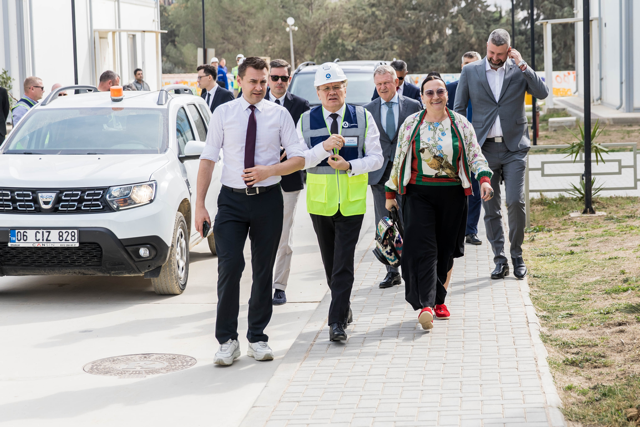
Construction of all four units of the nuclear plant is progressing as scheduled and with maximum safety measures observed. According to official estimates, safety costs account for up to 40% of total costs of the Akkuyu project.
The Mersin Province, a host region for the Akkuyu construction site, belongs to Category 5 area (an area that is the least prone to earthquakes), according to Turkey’s Disaster and Emergency Management Presidency (AFAD). There are no active fault lines within 100 km of the Akkuyu NPP site. Equipped with the latest technology, the power plant will be able to withstand a magnitude 9 earthquake and tsunami. Besides, the facility sits 10.5 meters above the sea level, which serves as an additional precaution against earthquakes and tsunami.
Speaking about the earthquake consequences on a local TV channel, President of the Turkish Earthquake Foundation Prof. Dr. Mustafa Erdik said he had conducted a study on potential earthquake effects for the nuclear power plant. “The strength of the shocks registered at Akkuyu during the last earthquake was only 1/400 of the design earthquake for the Akkuyu NPP project,” the professor stressed.
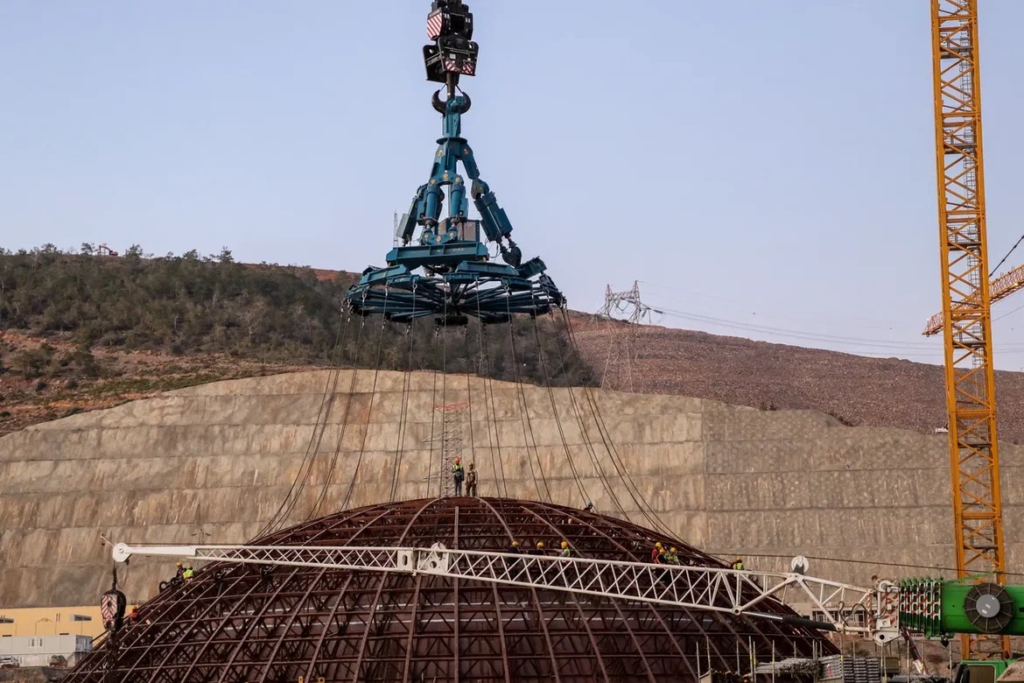
Many studies have been conducted since the 1970s to determine the seismic profile and risks of the area where the Akkuyu NPP is being constructed. To monitor seismic activity, 15 seismic stations were installed and studies conducted on faults, seismic hazards and tsunami risks in the Akkuyu area. Detailed studies were also conducted within 300 kilometers of the power plant site. Those comprehensive studies resulted in 78 individual reports totaling 27,000 pages.
In order to update the seismic data as required by the International Atomic Energy Agency (IAEA), four different seismic hazard studies were conducted for the Akkuyu NPP in 2011–2012 by independent research teams, including Boğaziçi University Kandilli Observatory and Earthquake Research Institute (KRDAE, Turkey), Russian Academy of Sciences Schmidt Institute of Physics of the Earth (Russia), WorleyParsons (EU), and RIZZO (USA). A comprehensive tsunami hazard assessment for the Akkuyu NPP was also conducted by the Civil Engineering Department of Middle East Technical University (METU, Turkey) and the Turkish Maritime Engineering Research Center.
As stated in the Akkuyu NPP Environmental Impact Assessment (EIA) report approved by the Turkish Ministry of Environment and Urbanization, the Akkuyu site is considered to be a low earthquake risk area based on a study conducted by the METU Earthquake Engineering Research Center.
On-site construction works are continuously monitored by national and international expert organizations. In addition to Akkuyu Nuclear, multistage inspections are carried out by contractor companies, independent inspection organizations, such as the French engineering group Assystem, and Turkey’s Nuclear Regulatory Authority (NDK).


